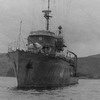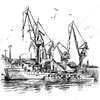 Реклама Google — средство выживания форумов :)
Реклама Google — средство выживания форумов :)
-
![[image]](https://www.balancer.ru/cache/sites/org/pa/panoptikon/uploads/posts/2021-07/128x128-crop/1626676201_90e7989.jpg)
Борьба за остров Змеиный
Теги:
Lunar> Все известно, как его подавлять. Вроде Смальта успешно его давила, по крайней мере Леманский получил инфаркт после неудачного испытания первого С-400 против Смальты.
Ну, а тогда в чем дело-то?
Здесь уже был ответ, что своих глушим - так, наверное, планировать налеты надо соответствующим образом.
Почему-то американцы и израильтяне успешно решали и решают такие вопросы.
Ну, а тогда в чем дело-то?
Здесь уже был ответ, что своих глушим - так, наверное, планировать налеты надо соответствующим образом.
Почему-то американцы и израильтяне успешно решали и решают такие вопросы.


gals> Ну, а тогда в чем дело-то?
А я откуда знаю?
gals> Здесь уже был ответ, что своих глушим - так, наверное, планировать налеты надо соответствующим образом.
Так это и называется проведение операции и это основы военного искусства. Но в реальности у ЧФ что-то не то происходит.
А я откуда знаю?
gals> Здесь уже был ответ, что своих глушим - так, наверное, планировать налеты надо соответствующим образом.
Так это и называется проведение операции и это основы военного искусства. Но в реальности у ЧФ что-то не то происходит.


stas27>> Немножко матом [показать]
кщееш> Зато самые симпатичные тёлки в мо в прессухе и самые тупые полковники.
В Ноттингемпшире глупые в мире
Были всегда доктора.
Самые-самые глупые в мире...
(попробовал перерифмовать про полковников прессухи, сходу не вышло)
Мда...
С другой стороны. А может не так всё плохо?
Да, ВНУТРИ России формулировка воспринимается настолько издевательски, что впору задаться вопросом, глупость или саботаж.
С другой, "на экспорт", может быть, это далеко не худший вариант? А может даже лучший.
Проблема в том, что формулировки пиара для внешнего и внутреннего рынков, вообще говоря, отличаются, порой очень сильно. А полностью разделить их в нынешних условиях едва ли возможно - инфопространство сверхпроводящее. Утечёт в обе стороны, если по-русски говорить одно, по-аглицки - другое. Вот разве что мыслим вариант, когда русский текст имеет формально смысл, приемлемый для западной аудитории, но внутри воспринимается носителями языка иначе за счёт тонкой идиоматики и аллюзий, тончайшей игры языком. Но такое даже умные полковники ниасилят - тут в штате прессотдела МО нужен если не Саша Пушкин, то хотя бы Дима Быков.
кщееш> Зато самые симпатичные тёлки в мо в прессухе и самые тупые полковники.
В Ноттингемпшире глупые в мире
Были всегда доктора.
Самые-самые глупые в мире...
(попробовал перерифмовать про полковников прессухи, сходу не вышло)
Мда...
С другой стороны. А может не так всё плохо?
Да, ВНУТРИ России формулировка воспринимается настолько издевательски, что впору задаться вопросом, глупость или саботаж.
С другой, "на экспорт", может быть, это далеко не худший вариант? А может даже лучший.
Проблема в том, что формулировки пиара для внешнего и внутреннего рынков, вообще говоря, отличаются, порой очень сильно. А полностью разделить их в нынешних условиях едва ли возможно - инфопространство сверхпроводящее. Утечёт в обе стороны, если по-русски говорить одно, по-аглицки - другое. Вот разве что мыслим вариант, когда русский текст имеет формально смысл, приемлемый для западной аудитории, но внутри воспринимается носителями языка иначе за счёт тонкой идиоматики и аллюзий, тончайшей игры языком. Но такое даже умные полковники ниасилят - тут в штате прессотдела МО нужен если не Саша Пушкин, то хотя бы Дима Быков.


Evgeny_C
втянувшийся
E.C.>> - с самого начала СВО на буксиры и спассуда флота + мобилизованные гражданские суда ставить Торы и Панцири на площадки и делать из всего это завесы и цепочки на линии от Крыма до Змеиного,
Fakir> А сухопутные Торы и Панцири вообще в состоянии работать с борта при волнении???
И тут я не настоящий сварщик, на авиабазе читал немного противоречивую инфу по этой проблеме. В конце концов в дни без большого волнения они точно буду работать, а это уже что-то, ограничивает противника в выборе дней для активных действий. Можно в конце концов мобилизовать суда с большим водоизмещением, качка на таких меньше, чем на малых платформах типа флотских малых патрульниках и корветах, так что острота проблемы не такая, а летнее ЧМ - не Тихий океан в 40х широтах. Простой большого сухогруза = убытки, но ведь идет СВО, противостояние миров, ставки высоки, так что издержки на это - мелочь. Британцы контейнеровоз мобилизовали для Фолклендов и он оправдал себя, пусть и утоп. Кстати, балкеры с Торами на палубах и с загрузкой инертным грузом типа песка (а можно и пустыми бочками трюмы забить для плавучести после пробития ниже ватерлинии) наверняка устойчивее, чем Москва и прочие современные корабли с горючими материалами и ВВ. По крайней мере с Байрактара ракетой МAM-L или с малого катера ПТУРить диверсантами Москву и прочие корабли можно топить, если хорошо знать куда целить (Москву уж точно), а большому балкеру это как слону дробина, хотя Гарпун его может прибить.
Добавлю еще про Атлантик Конвейор, если бы он не вез боеприпасы и топливо для авиации, то хрен бы мобилизованный контейнеровоз утопили аргентинцы при помощи ПКР с относительно малой БЧ.
Fakir> А сухопутные Торы и Панцири вообще в состоянии работать с борта при волнении???
И тут я не настоящий сварщик, на авиабазе читал немного противоречивую инфу по этой проблеме. В конце концов в дни без большого волнения они точно буду работать, а это уже что-то, ограничивает противника в выборе дней для активных действий. Можно в конце концов мобилизовать суда с большим водоизмещением, качка на таких меньше, чем на малых платформах типа флотских малых патрульниках и корветах, так что острота проблемы не такая, а летнее ЧМ - не Тихий океан в 40х широтах. Простой большого сухогруза = убытки, но ведь идет СВО, противостояние миров, ставки высоки, так что издержки на это - мелочь. Британцы контейнеровоз мобилизовали для Фолклендов и он оправдал себя, пусть и утоп. Кстати, балкеры с Торами на палубах и с загрузкой инертным грузом типа песка (а можно и пустыми бочками трюмы забить для плавучести после пробития ниже ватерлинии) наверняка устойчивее, чем Москва и прочие современные корабли с горючими материалами и ВВ. По крайней мере с Байрактара ракетой МAM-L или с малого катера ПТУРить диверсантами Москву и прочие корабли можно топить, если хорошо знать куда целить (Москву уж точно), а большому балкеру это как слону дробина, хотя Гарпун его может прибить.
Добавлю еще про Атлантик Конвейор, если бы он не вез боеприпасы и топливо для авиации, то хрен бы мобилизованный контейнеровоз утопили аргентинцы при помощи ПКР с относительно малой БЧ.


Это сообщение редактировалось 30.06.2022 в 15:09
Fakir> Проблема в том, что формулировки пиара для внешнего и внутреннего рынков, вообще говоря, отличаются, порой очень сильно. А полностью разделить их в нынешних условиях едва ли возможно - инфопространство сверхпроводящее. Утечёт в обе стороны, если по-русски говорить одно, по-аглицки - другое. Вот разве что мыслим вариант, когда русский текст имеет формально смысл, приемлемый для западной аудитории, но внутри воспринимается носителями языка иначе за счёт тонкой идиоматики и аллюзий, тончайшей игры языком. Но такое даже умные полковники ниасилят - тут в штате прессотдела МО нужен если не Саша Пушкин, то хотя бы Дима Быков.
Нет, везде только снисходительная улыбка и «жест доброй воли» в кавычках.
«.. The Russian defense ministry, in a statement, sought to cast the retreat as “a gesture of goodwill” that would “not allow Kyiv to speculate on the impending food crisis,” since control of the island is vital to securing the shipping lanes in the northwestern corner of the Black Sea.» - New York Times
Возможно, в европейских СМИ будет дана оценка под каким-то другим углом, в гуманитарной составляющей, разговорами про зерно, и т.д., но американцы смотрят через свою призму.
Нет, везде только снисходительная улыбка и «жест доброй воли» в кавычках.
«.. The Russian defense ministry, in a statement, sought to cast the retreat as “a gesture of goodwill” that would “not allow Kyiv to speculate on the impending food crisis,” since control of the island is vital to securing the shipping lanes in the northwestern corner of the Black Sea.» - New York Times
Возможно, в европейских СМИ будет дана оценка под каким-то другим углом, в гуманитарной составляющей, разговорами про зерно, и т.д., но американцы смотрят через свою призму.
Прикреплённые файлы:


В.Л.> Возможно, в европейских СМИ будет дана оценка под каким-то другим углом, в гуманитарной составляющей, разговорами про зерно, и т.д., но американцы смотрят через свою призму.

Такое вот мнение.

Михаил Онуфриенко 30.06.2022 последние новости сегодня с Украины день
Смотреть последний выпуск день 30.06.2022 видео от Михаила Онуфриенко про свежие последние новости с Украины и мира на сегодня. // podolyaka.ruТакое вот мнение.


S.I.>> Римская пословица "Стадо баранов, предводительствуемое львом, непременно победит стаю львов, которой командует баран".
preodol> У меня когнитивный диссонанс. Намекни, кто есть кто?
Хороший вопрос. ИМХО, периодически они меняются местами.
preodol> У меня когнитивный диссонанс. Намекни, кто есть кто?
Хороший вопрос. ИМХО, периодически они меняются местами.


gals> Ясно, что никто не задумывался по-серьезному о проведении десантных операций на ЧМ.
Они что полные идиоты? Как это возможно? Нахрена тогда 12 БДК туда загнали?
В СССР задумывались, а в РФ перестали?
Они что полные идиоты? Как это возможно? Нахрена тогда 12 БДК туда загнали?
В СССР задумывались, а в РФ перестали?


В.Л.> Нет, везде только снисходительная улыбка и «жест доброй воли» в кавычках.
Ну у бибисяев пока скорее нейтрально, с цитированием точек зрения сторон конфликта.

Хотя вот тут при стремлении к нейтральности критика версии о жесте доброй воли уже встречается - но, я бы сказал, не полностью отвергается, т.к. ниже они же чётко упоминают о том, что Украина отказалась от российского предложения сопровождать конвои с зерном из Одессы, так что здравомыслящие читатели - таковых хватает - вполне могут в совокупности оценить и слова насчёт жеста доброй воли.

Ну у бибисяев пока скорее нейтрально, с цитированием точек зрения сторон конфликта.

Ukraine war latest: Russia withdraws troops from Snake Island - BBC News
Ukraine claims a major victory after Moscow confirms forces are leaving the strategic island, fought over since the start of the war. // www.bbc.comSummary
Russia says its forces have relinquished control of Snake Island in the north-western Black Sea, which has been battled over since the start of the war
Moscow says its withdrawal is a "goodwill gesture" to facilitate grain exports - but Ukraine celebrates a victory
UK PM Boris Johnson says it is evidence of Ukrainian forces' "amazing ability" to fight back
Nato's chief says members have agreed a significant increase in funding for the alliance, on the second day of its Madrid summit
Jens Stoltenberg says Sweden and Finland will sign the protocol to join Nato on Tuesday, though member states will then need to ratify it
Ukraine's military has welcomed fresh Nato pledges but officials say shells are continuing to rain down in eastern Ukraine
Vladimir Putin meanwhile accuses Nato of having imperial ambitions
Хотя вот тут при стремлении к нейтральности критика версии о жесте доброй воли уже встречается - но, я бы сказал, не полностью отвергается, т.к. ниже они же чётко упоминают о том, что Украина отказалась от российского предложения сопровождать конвои с зерном из Одессы, так что здравомыслящие читатели - таковых хватает - вполне могут в совокупности оценить и слова насчёт жеста доброй воли.

Snake Island: Why Russia couldn't hold on to strategic Black Sea outcrop
Russia claims it is a gesture of goodwill, but the withdrawal from a Black Sea rock is a big defeat. // www.bbc.comAfter more than four months of repeated Ukrainian bombardment, Russian forces have abandoned Snake Island, or Zmiinyi Island as it is known in Ukraine.
Russia says it has withdrawn its garrison as a "gesture of goodwill" to prove it was not obstructing grain exports, but Ukraine dismissed that claim, as Moscow continued to shell its grain stores.
Difficult to defend
The island is exposed to attacks from all directions from air and sea, and the small garrison tasked with defending it - first Ukrainians and later Russians - have been described as "sitting ducks" by military experts
Russia already controls a large stretch of Ukraine's Black Sea coast, plus the Crimean Peninsula and the entire Sea of Azov. Holding Snake Island completed an effective blockade of Odesa, and meant exports of the vast majority of Ukrainian grain were impossible.
It also meant the Black Sea coast became vulnerable to attack too, and military experts in Kyiv voiced fears that Russia could install long-range air defences, such as an S-400 air missile system.
A look at the map also shows that Russian control of the island represented a threat to Nato member Romania - both its key port of Constanta and traffic in the mouth of the River Danube.
It is not just strategically significant - this area is also rich in reserves of petroleum and gas.
Moscow's version of the story
Analysis box by Steve Rosenberg, Russia editor
We've grown accustomed to this: Russia putting out a version of events that is wildly different from that presented by Ukraine or by Western governments.
Moscow wants us to believe that there was no Russian retreat from Snake Island.
The statement issued by the Russian Defence Ministry claims that Russian troops there had simply completed "assigned tasks" and left. It also called the departure "a goodwill gesture", to show that Russia wasn't hampering food exports from Ukraine.
Considering the strategic importance of Snake Island, which has been fought over for months, and considering, too, the lack of "goodwill gestures" by the Russian armed forces in Ukraine since the invasion, this version of events will convince few outside Russia.
Then again, this may be directed more at a domestic audience. The Kremlin wants the Russian public to believe that:
In this conflict, the Russians are the good guys
The Kremlin's so-called "Special Military Operation" in Ukraine is going according to plan.
A potential game-changer
This is not just a symbolic victory for Ukraine, it is a strategic success. For Russia this is both a setback and an embarrassing defeat.
But it will not substantially change the course of the war. Russia's focus is on conquering the whole of the eastern Donbas and holding on to other areas of the south that it seized at the start of the war.
Snake Island may be in a highly strategic part of the Black Sea and in an ideal spot for installing sophisticated missile systems, but ultimately it is still a very small rock.
The key question is whether, by forcing the Russians out, the Ukrainians could consider resuming grain exports to reboot their war-ravaged economy. Without an effective navy, there is little chance of that yet, and Russian warships maintain their dominance over the Black Sea.
"Practically, you need 10 things to happen before you can safely export grain and this is only one," says Andrew Wilson, professor of Ukrainian studies at University College London.
Ukraine has rejected Russian offers to escort grain convoys from Odessa as they would require removing mines from outside the port.
Turkey is actively involved in trying to negotiate an agreement with both Russia and Ukraine but the prospect of that happening appear remote at this stage.
The next few weeks are seen as pivotal to Ukraine's exports - because the next harvest begins in July.


S.I.> Они что полные идиоты? Как это возможно? Нахрена тогда 12 БДК туда загнали?
S.I.> В СССР задумывались, а в РФ перестали?
Вопрос про идиотов ко мне?
А в СССР уж точно не задумывались о десантах на Украину. Турция, разве под боком была, да Ближний Восток.
Да и то с буржуями собирались ядреным батоном разбираться. Нынешние адмиралы, кажется, успели в советских училищах поучиться.
Да и задачей кораблей флота было успеть применить свое оружие до того, как противник их накроет, имхо.
Ясно, что никто всерьез не рассматривал вариант боевых действий, который реализовался сейчас.
По-моему, из-за невозможности нейтрализовать натовскую разведку все идёт тяжелее, чем при прямом сколкновении с НАТО.
S.I.> В СССР задумывались, а в РФ перестали?
Вопрос про идиотов ко мне?
А в СССР уж точно не задумывались о десантах на Украину. Турция, разве под боком была, да Ближний Восток.
Да и то с буржуями собирались ядреным батоном разбираться. Нынешние адмиралы, кажется, успели в советских училищах поучиться.
Да и задачей кораблей флота было успеть применить свое оружие до того, как противник их накроет, имхо.
Ясно, что никто всерьез не рассматривал вариант боевых действий, который реализовался сейчас.
По-моему, из-за невозможности нейтрализовать натовскую разведку все идёт тяжелее, чем при прямом сколкновении с НАТО.


johnkey68> Темнейший решил на двадцатке прослыть миротворцем ? 
Кинут.
Снова.

Кинут.
Снова.


johnkey68>> Темнейший решил на двадцатке прослыть миротворцем ? 
Novice1975> Кинут.
Novice1975> Снова.
Дык а я об чем ? !
Хотя ... херЪ его знает что там у него в башке творится
Такие рамсы просто так не заканчиваются .
Я бы просто бахнул , что бы свиная шерсть одномоментно и осталось только веником смахнуть ...

Novice1975> Кинут.
Novice1975> Снова.
Дык а я об чем ? !

Хотя ... херЪ его знает что там у него в башке творится

Такие рамсы просто так не заканчиваются .
Я бы просто бахнул , что бы свиная шерсть одномоментно и осталось только веником смахнуть ...


В.Л.>>> onufrienko
Gasilov>> Такое вот мнение.
preodol> Переобувание в прыжке засчитано. Крановщики, бурильщики и сварщики не согласны
"Так не доставайся же ты (остров) никому!"
Gasilov>> Такое вот мнение.
preodol> Переобувание в прыжке засчитано. Крановщики, бурильщики и сварщики не согласны

"Так не доставайся же ты (остров) никому!"


johnkey68> Темнейший решил на двадцатке прослыть миротворцем ? 
На западе уже делают из этого выводы.
И новые поставки дальнобойной арты для усиления "миротворчества" вангую я
johnkey68>Сравнять Змеиный с морской поверхностью или отправить его в абиссаль ?
Итс импосибл
ЧФ устроят из этого вторую битву за Гуадалканал
johnkey68> И то и другое вполне себе выполнимо
У укров до сих пор большая часть их флота плавает и в ус не дует
Флотские даже здоровенный СДК не могут потопить
johnkey68> А что потом ?
А потом скажут что так и было задумано

На западе уже делают из этого выводы.
И новые поставки дальнобойной арты для усиления "миротворчества" вангую я

johnkey68>Сравнять Змеиный с морской поверхностью или отправить его в абиссаль ?
Итс импосибл

ЧФ устроят из этого вторую битву за Гуадалканал

johnkey68> И то и другое вполне себе выполнимо
У укров до сих пор большая часть их флота плавает и в ус не дует
Флотские даже здоровенный СДК не могут потопить

johnkey68> А что потом ?
А потом скажут что так и было задумано



Коробочка> ЧФ устроят из этого вторую битву за Гуадалканал…
Одну «эпическую» битву ЧФ я кажется припоминаю. Грузинский конфликт. «Бой» эскадры с 5тью КАТЕРАМИ.
Вместо показательного «камня на камне», получилась какая то убогая херня.
Одну «эпическую» битву ЧФ я кажется припоминаю. Грузинский конфликт. «Бой» эскадры с 5тью КАТЕРАМИ.
Вместо показательного «камня на камне», получилась какая то убогая херня.


Evgeny_C
втянувшийся
Коробочка> У укров до сих пор большая часть их флота плавает и в ус не дует
Коробочка> Флотские даже здоровенный СДК не могут потопить
Так в этой ветке уже определись вроде, какое может быть решение проблемы, я даже одно конкретное название могу дать ему.
Коробочка> Флотские даже здоровенный СДК не могут потопить

Так в этой ветке уже определись вроде, какое может быть решение проблемы, я даже одно конкретное название могу дать ему.


E.C.> Так в этой ветке уже определись вроде, какое может быть решение проблемы
Черноморский флот раскассировать до флотилии
Подчинить армейцам
Любителей щеголять в белых штанах перевести на СФ и ТОФ
Черноморский флот раскассировать до флотилии
Подчинить армейцам
Любителей щеголять в белых штанах перевести на СФ и ТОФ



Fakir> С другой стороны. А может не так всё плохо?
Fakir> Да, ВНУТРИ России формулировка воспринимается настолько издевательски, что впору задаться вопросом, глупость или саботаж.
Fakir> С другой, "на экспорт", может быть, это далеко не худший вариант? А может даже лучший.
Так у тамошних свои пиарщики есть, они наверняка уже о перемоге вовсю орут.
Fakir> Да, ВНУТРИ России формулировка воспринимается настолько издевательски, что впору задаться вопросом, глупость или саботаж.
Fakir> С другой, "на экспорт", может быть, это далеко не худший вариант? А может даже лучший.
Так у тамошних свои пиарщики есть, они наверняка уже о перемоге вовсю орут.


Evgeny_C
втянувшийся
E.C.>> Так в этой ветке уже определись вроде, какое может быть решение проблемы
Коробочка> Черноморский флот раскассировать до флотилии
Коробочка> Подчинить армейцам
Коробочка> Любителей щеголять в белых штанах перевести на СФ и ТОФ
Отчасти угадано, такое тут в ветке форума предлагали уже, но главный высказанный рецепт "придётся наступать в стиле монгольской конницы Батыя - по берегу". Мой вариант названия решения проблемы Змеиного - "ввод в наступление по прибрежным территориям 1-ой гвардейской танковой армии под прикрытием ВКС". Сейчас она в своих городках и на полигонах изучает ошибки и удачные тактические приемы и находки ныне воюющих доблестных сухопутных войск.
Коробочка> Черноморский флот раскассировать до флотилии
Коробочка> Подчинить армейцам
Коробочка> Любителей щеголять в белых штанах перевести на СФ и ТОФ

Отчасти угадано, такое тут в ветке форума предлагали уже, но главный высказанный рецепт "придётся наступать в стиле монгольской конницы Батыя - по берегу". Мой вариант названия решения проблемы Змеиного - "ввод в наступление по прибрежным территориям 1-ой гвардейской танковой армии под прикрытием ВКС". Сейчас она в своих городках и на полигонах изучает ошибки и удачные тактические приемы и находки ныне воюющих доблестных сухопутных войск.


Это сообщение редактировалось 30.06.2022 в 17:43
 Реклама Google — средство выживания форумов :)
Реклама Google — средство выживания форумов :)
Copyright © Balancer 1997..2024
Создано 06.05.2022
Связь с владельцами и администрацией сайта: anonisimov@gmail.com, rwasp1957@yandex.ru и admin@balancer.ru.
Создано 06.05.2022
Связь с владельцами и администрацией сайта: anonisimov@gmail.com, rwasp1957@yandex.ru и admin@balancer.ru.
 gals
gals

 инфо
инфо инструменты
инструменты

 Fakir
Fakir

 Воды Лагидзе
Воды Лагидзе

 Serg Ivanov
Serg Ivanov


 Novice1975
Novice1975






